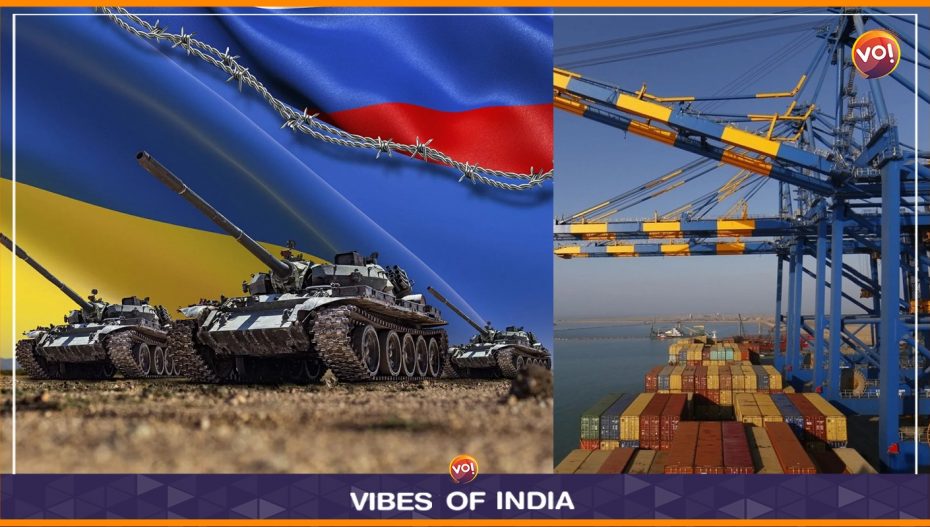The Russian-Ukraine conflict has once again reiterated that the world indeed is a global village. Even as the two nations continue to fight each other, clear alliances have been formed between nations: one with Russia and the other backing Ukraine. What no one imagined, however, was the far-reaching consequences of the war on trade and commerce. The US continues to mount sanctions against Russia while trade routes crisscrossing the vast Soviet bloc remain prevented.
In India’s case, it is Gujarat which is bearing a major chunk of the economic blow. Manufacturing units in Gujarat are reeling under the much lower demand from the two nations and Europe on the whole, while the globally rising interest rates having dented production optimal.
Gujarat, known globally as a manufacturing hub, is a leading player in gems and jewellery, textiles, yarn and denims, ceramics and chemicals. “The global downs have impacted discretionary spending. Therefore, Gujarat’s exporters in most have witnessed a twin blow with both, B2B and B2C, demands going down in the US and Europe,” stated Pathik Patwari, president Gujarat Chamber Of Commerce and Industry (GCCI).
To begin with, the economic slowdown and recessionary trends in the US, UK and Europe have led to a significant decline in demand for cut and polished diamonds. Surat is the global hub for polished diamonds. According to data sourced from Gems and Jewellery Export Promotion Council (GJEPC), the gross exports of cut and polished diamonds declined 10% between April 2022 and January 2023 to $18,070 million (Rs 1,47,828 cr). Due to the rise in gold prices even the growth of gold jewellery exports slowed down during the period. Explaining the plunge, Haresh Acharya, director, Indian Bullion and Jewellers’ Association said: “Surat’s diamonds thrive on demand from the US, UK, France, Switzerland and Germany. The war has triggered discretionary spending. Essentials have become expensive and luxe items have been taken off the list.”
Likewise, in the case of ceramic tiles. Rising input costs and declining demand in the export and domestic market have impacted demand in the real estate sector. “As such, the market for ceramic tiles has eroded at least by 50%,” shared K.G. Kundariya from Morbi Ceramics Association. As on date, nearly 200 ceramic tile makes in the state have had to down shutters. This, in turn has dis-employed thousands at these units.
Vibrant Gujarat is also known for its textile and apparel industry. However, ever since the war, cotton yarn exports declined nearly 60% between April and December 2022. Reports by GCCI textiles committee pin the blame on gas and power prices increasing nearly six-fold in Europe industries in textile producing countries like Portugal, France, Germany and Spain have had to cut down manufacture. This in turn led to lower demand for raw material from Gujarat. This is especially true in the case of cotton and polyester yarns,” shared committee chairman Rahul Shah. In ways, cutting down costs at every step in the value chain has dented the textile growers in India. “Even denim manufacturers have reported declining third-quarter revenues due to eroding demand,” he added.
Linked to the textile industry, dye exports have also been adversely impacted. Limited procurement of dyes and intermediates by European textile manufacturers have made production unviable in face of the shrinking demand. “Manufacturers cannot pass on costs to end consumers at a time like this. As a result, major names in the segment have either shut down or are operating at 30% of the capacity,” shared Bhupendra Patel, chairman, Chemexcil, Gujarat.
Also Read: Communal Tension Brewing Again In Bilkis Bano’s Native Town











